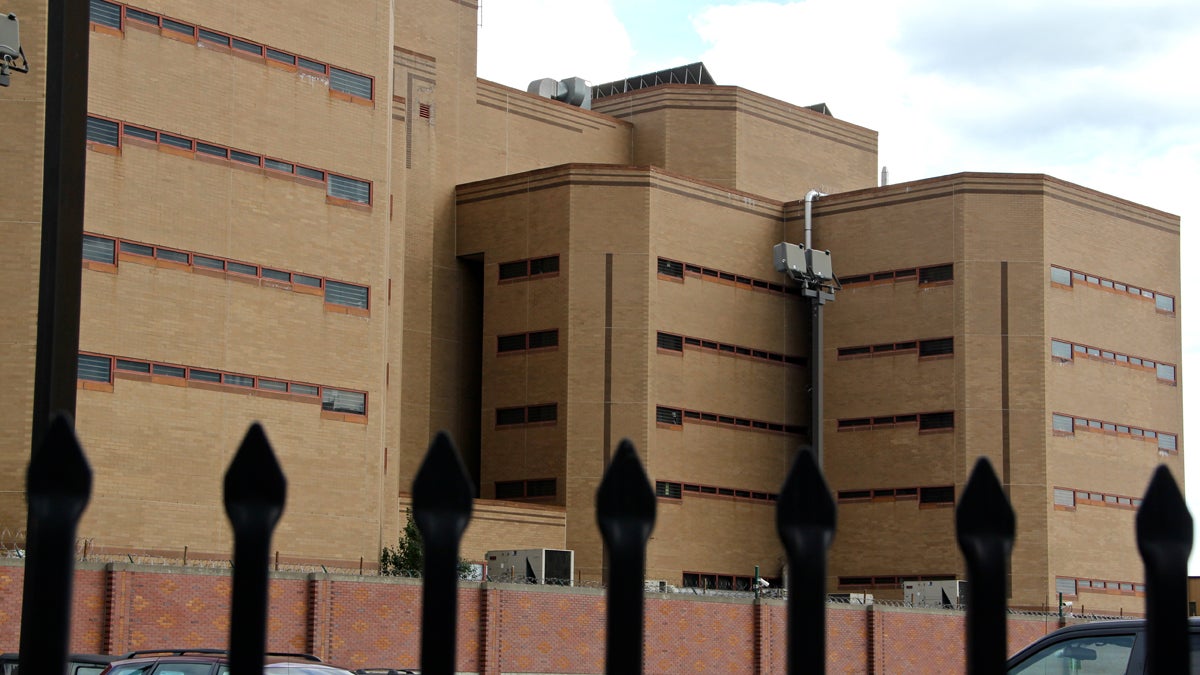N.J. prosecutors will ask to jail defendants before trial more often

Camden County jail in New Jersey (NewsWorks file photo)
County prosecutors in New Jersey will ask judges more often to detain defendants accused of certain crimes under the state’s new bail system, a move criticized by criminal justice advocates who have been sparring with law enforcement officials since the overhaul took effect in January.
The change does not necessarily mean that more defendants will be held in jail before their trials, since judges still have the discretion whether to order detention.
But it does mean that county prosecutors will now throw more requests for detention against the wall, hoping they stick.
“Now that we’ve had five months of actual experience in courtrooms — we’ve been able to talk to prosecutors and police around the state, look at the broader statistics — these were a couple of areas that jumped out as needing some adjustment,” said Elie Honig, director of the N.J. Division of Criminal Justice.
The directive issued Wednesday by the state Attorney General’s offices “creates [the] presumption” that prosecutors will ask to jail defendants accused of gun crimes or accused of any crimes while released on parole, probation, or long-term supervision given to sex offenders.
Prosecutors will also ask judges to detain defendants accused of assaults on police.
Depending on the facts of the case, prosecutors choose not to ask for detention at their discretion, but those cases should be the exception, Honig said.
The state scrapped cash bail in January in favor of a risk-based system to determine whether criminal defendants be held in jail or released before trial.
So far judges have ordered detention in more than half of the requests made by prosecutors. Judges only can detain defendants before trial when prosecutors ask them to.
Wednesday’s directive came after growing frustration among some residents, law enforcement officials, and even state lawmakers that the state’s bail reform efforts were permitting dangerous criminals to get back out on the streets more frequently than in the days of cash bail.
In January convicted sex offender Christopher Wilson was released after trying to solicit sex from a 12-year-old girl, angering some in the community and pushing the Ocean County Prosecutor’s Office to appeal the judge’s decision.
Critics in cities already on edge due to gun violence have also complained that defendants accused of firearms offenses are being let go too frequently.
“It is very difficult to tell the community, to tell human beings, that, ‘Oh, well this is bail reform. It’s new. We’re going to adjust it at some later date.’ That’s impossible to do,” said Sen. Sandra Cunningham, D-Hudson, at a recent budget hearing. Cunningham represents Jersey City.
“Unfortunately when [defendants] come back out on the streets, they’re coming back out and they’re shooting someone. Or they’re killing someone,” she said.
But criminal justice advocates say the new system, which assigns defendants a risk score based on a number of factors including criminal history, is a smarter way of determining whether pretrial detention is necessary. Especially given that, under the previous system, dangerous defendants with deep pockets could easily pay their way out of jail.
“Detention is supposed to be the exception rather than the rule,” said Alexander Shalom, a senior staff attorney at the NJ-ACLU.
“Thus far, in almost half of cases, [judges] have told the prosecutor that they’re seeking detention too often,” Shalom said, alluding to the success rate of detention motions made by prosecutors. “I expect that number to only climb as the number of requests climbs.”
WHYY is your source for fact-based, in-depth journalism and information. As a nonprofit organization, we rely on financial support from readers like you. Please give today.




